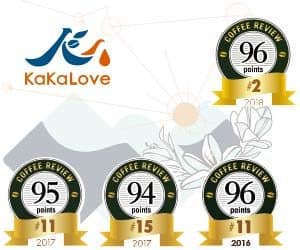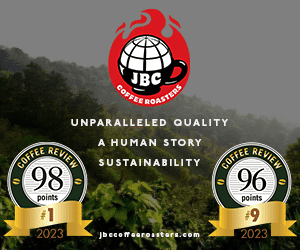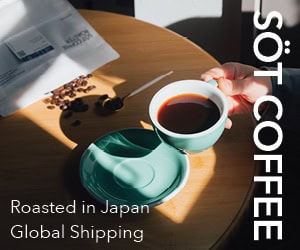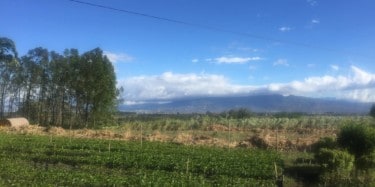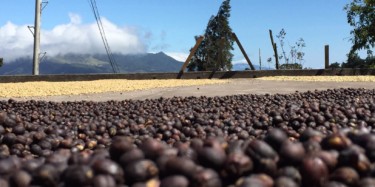This coffee tied for the fourth-highest rating in a tasting of natural-processed single-origin espressos for Coffee Review’s August 2018 tasting report. Produced at Tirra Estate by members of Coopetarrazu Cooperative from trees of the Caturra and Catuai varieties of Arabica. Processed by the natural method, meaning the beans were dried inside the fruit rather than after the fruit has been removed,
SEARCH RESULTS
Natural-Process Espressos: Fruit and Chocolate Exalted
I recently led a tasting of fine coffees at a consumer event. Only one of these coffees was natural-processed, i.e., had been prepared at the mill by drying the coffee seeds or beans inside the whole fruit. The other samples were all washed coffees, processed by drying the beans after the fruit skin and flesh had been removed. The washed method is the traditional norm for fine coffee in most
Ethiopia Yirgacheffe Koke
This coffee tied for the third-highest rating in a cupping of coffees roasted by women for Coffee Review‘s April 2018 tasting report. Yirgacheffe is a coffee region in southern Ethiopia that produces distinctive coffees from traditional varieties of Arabica long grown in the region. This is a “natural” or dry-processed version, meaning the beans were dried inside the fruit, encouraging a flavor
Women in Coffee: Why It Matters That “She’s the Roaster”
Last summer, we began our exploration of women's roles in the complex coffee supply chain by looking at the work of farmers—women who work in coffee production as pickers, managers, members of cooperatives, and owners of small farms. In this month's report, we turn our attention to those women who are crucial in the next step of the supply chain: turning green coffee into roasted. We structured
Costa Rica Las Cuadras F1 Hybrid Natural
Produced entirely from trees of an F1 hybrid variety, in this case a cross between the old-fashioned, robusta-incorporating hybrid Sarchimor and the ancient heirloom Sudan Rume varieties of Arabica. This is a dry-processed or “natural” coffee, meaning the beans were dried inside the fruit rather than after the fruit has been removed, as is the case with wet-processed or “washed” coffees. This
Costa Rica 2016: Innovation and Success in a Changing Market
It has been more than a decade since Coffee Review explored Costa Rica coffees in depth, though we cup many individual samples each year from this small, coffee-celebrated Central American country. In the last year alone, we reviewed 26 Costa Rica coffees at ratings of 91 to 96, including one, Temple Coffee’s Costa Rica Alberto Guardia Venecia Honey (94), which landed at the #17 spot on our 2015
Beyond the Review: Celebrating Coffees in Depth
This is not your typical Coffee Review tasting report. In fact, it is something of an unplanned improvisation. We originally had scheduled a tasting report on coffees of Costa Rica this month, but we decided to postpone it until next month, October. It turned out that Costa Ricas were slow to arrive in roasters’ warehouses this crop year, and we feared that if we rushed the article we would miss
Ethiopia Gedeb Natural
The Yirgacheffe region produces distinctive coffees from traditional varieties of Arabica long grown in the area. This is a “natural” or dry-processed version, meaning the beans were dried inside the fruit rather than after the fruit has been removed, as is the case with wet-processed or “washed” coffees. Argyle Coffee Roasters aims to provide people the opportunity to drink better coffee through





